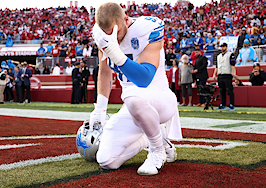Growing up in New Orleans, I was constantly surrounded by people who looked like me and had similar life experiences as me. But when I moved to Edmond, Oklahoma, in 2005, I could hardly find Black people anywhere.
Although I could buy in my neighborhood of choice, I couldn’t fully escape the effect of past housing restrictions. Neighbors told me that we were the only Black family in the neighborhood. I would go to the neighborhood pool and use my code to get in, but people would ask, “Who are you?” and “Where do you live?”
My children would walk the neighborhood, and people would call the police. I was forced to have state IDs made for my children at eight and nine years old so that they could prove that they lived in the neighborhood.
How past restrictions on Black homeownership have lingering effects
When I started my career in real estate in 2014, I began to learn more about how past restrictions on homeownership for Blacks have affected us as a community. Dating back to the early 1900s, restrictive covenants on deeds forbade selling homes to people of color to maintain segregation. Even though Oklahoma was desegregated in 1970, the language is still part of older deeds.
Appraisal bias is another significant and challenging issue to address because of the historical nature of a title. Old redlines may have been officially abolished, but similar properties are appraised unofficially based on their address. Homes that were wrongly underpraised are affected decades down the line.
This systemic bias is difficult to remediate, but its repercussions have affected the ability of Black homeowners to build generational wealth at the same rate as white homeowners. The ripple effect is almost hard to comprehend.
That’s why I’m part of an effort advocating for changes to be made. As a member of the Oklahoma Association of Realtors and founder and past president of the United Oklahoma Association of Realtors, a chapter of the National Association of Real Estate Brokers, the oldest minority professional trade association in America focused on Black equity in homeownership, I was part of an effort to advocate for laws that enable governments and property owners to disavow discriminatory language on deeds.
Diversity, equity and inclusion in 2024
We were thrilled when the Oklahoma state legislature introduced a bill to allow property owners to renounce discriminatory language in land records, and it was signed into law in May.
Of course, there is always more work to be done regarding equity for Black homeowners. As one of the components of DEI (diversity, equity and inclusion), equity is at the core of our continued efforts to ensure fair housing laws prohibiting discrimination are upheld.
As the 2024 president of the Edmond Board of Realtors (the first ever African-American to hold this leadership position), I recently participated in an event titled “Celebrating Diversity Together.” Members from five Realtor boards and four other real estate-related groups came together to address how to effectively create a cadre of real estate professionals who represent and reflect the communities we serve.
To that end, we need to promote the profession to underrepresented demographics, and this starts as early as high school. We’re working with school boards to make that happen and to educate the next generation of working adults that real estate is a viable profession, not a part-time job, as well as an inclusive industry.
Unfortunately, advocating for change is often a “two steps forward, one step back” endeavor. In December of 2023, the governor of Oklahoma signed an executive order banning all DEI programs in state agencies, including colleges and universities.
It’s a growing trend. The Chronicle of Higher Education reports that at least 40 anti-DEI bills have been introduced in 22 states and at least seven have passed. Last year, Texas Gov. Greg Abbott banned DEI offices at public colleges and universities, while Florida Gov. Ron DeSantis defunded such programs.
It’s time to debunk the myths around DEI
It’s incredibly frustrating to see how misunderstood and divisive DEI efforts are. However, on the front lines for me and my agents here in Edmond and the Oklahoma City metro, we work every day to debunk myths that have been propagated, essentially painting a picture that homeownership is unattainable for Black Americans.
As a community that has historically and systemically been denied equal opportunity, we are quick to take the first “no” that we hear as final and absolute. We’re here to tell hopeful homeowners that just because the first bank says no doesn’t mean you can’t qualify for a mortgage. We are here to advocate for our clients and leverage our knowledge of the process for their benefit.
Imagine being told “no” all your life. It becomes a mindset that is passed from generation to generation. I make it my business to tell people yes.
As frustrated as I am, I keep going because I know it will get better. After all, I am not the only one furthering this cause.
Janel Randall is the managing broker with Better Homes and Gardens Real Estate Paramount in Edmond, Oklahoma, serving the greater Oklahoma City Metro Area. Connect with her on Facebook.













